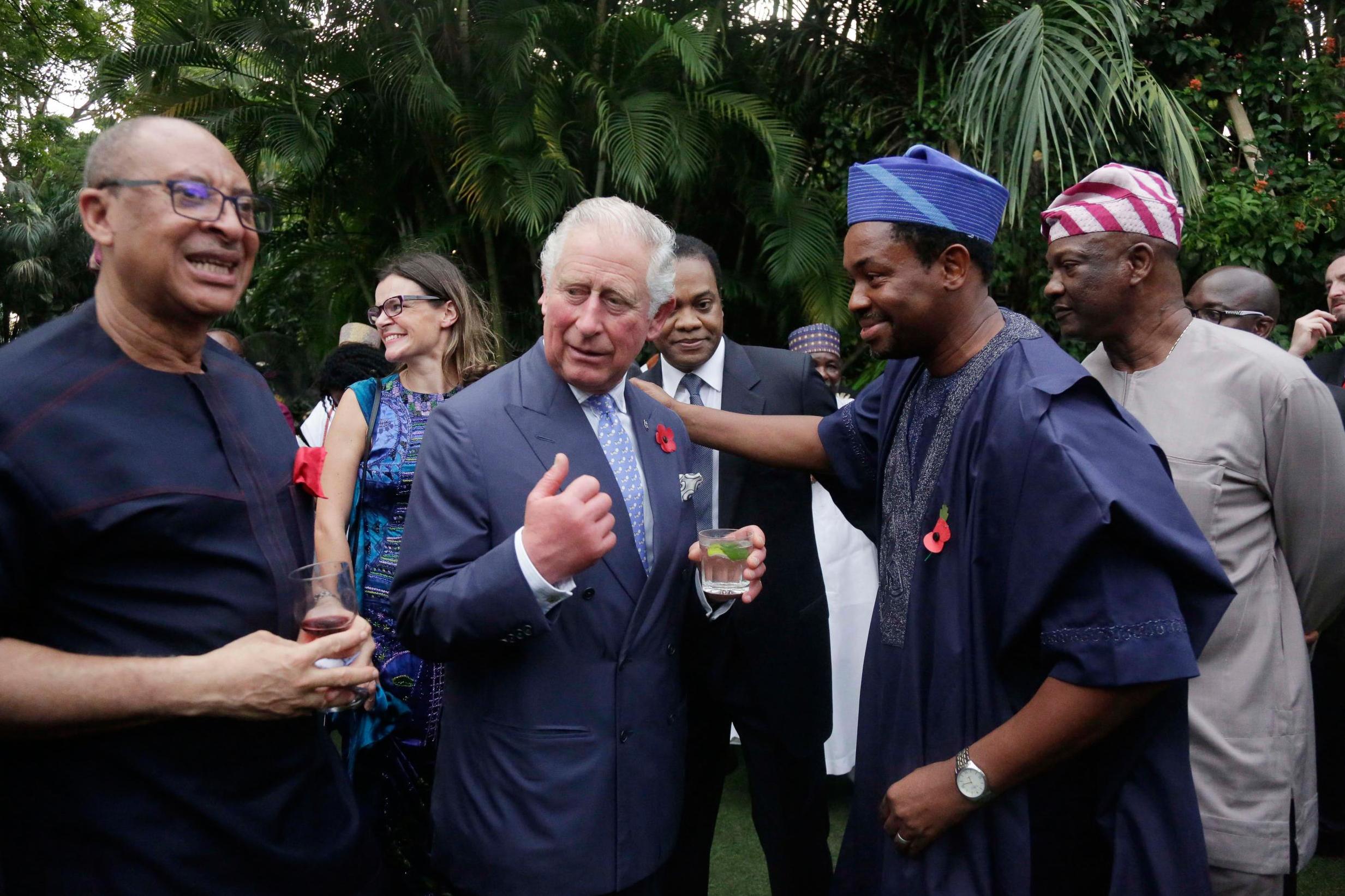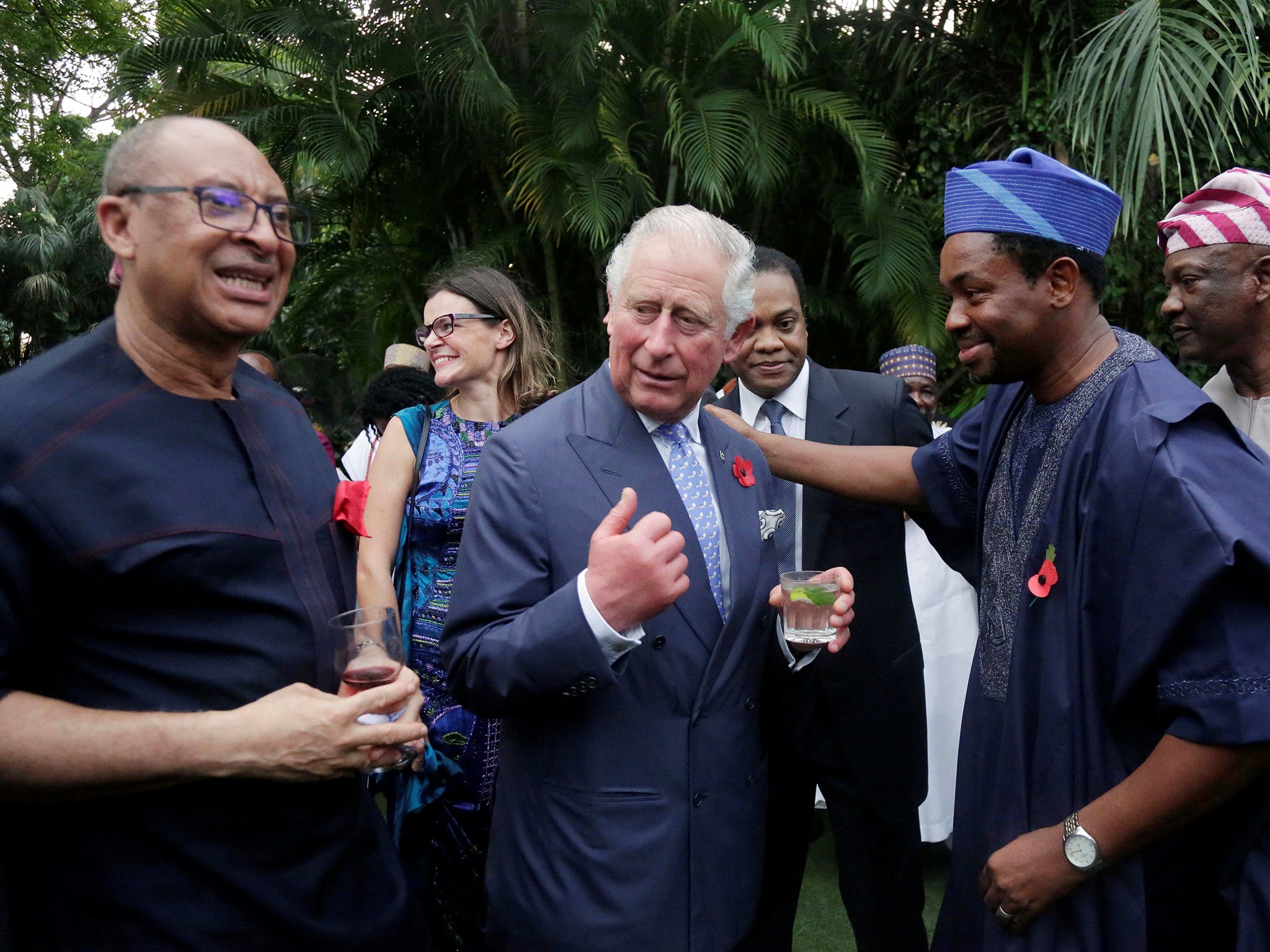'How you dey?': Prince Charles speaks Pidgin on visit to Nigeria
‘God don butta my bread’

Your support helps us to tell the story
From reproductive rights to climate change to Big Tech, The Independent is on the ground when the story is developing. Whether it's investigating the financials of Elon Musk's pro-Trump PAC or producing our latest documentary, 'The A Word', which shines a light on the American women fighting for reproductive rights, we know how important it is to parse out the facts from the messaging.
At such a critical moment in US history, we need reporters on the ground. Your donation allows us to keep sending journalists to speak to both sides of the story.
The Independent is trusted by Americans across the entire political spectrum. And unlike many other quality news outlets, we choose not to lock Americans out of our reporting and analysis with paywalls. We believe quality journalism should be available to everyone, paid for by those who can afford it.
Your support makes all the difference.Prince Charles has tried his hand at speaking Pidgin, the lingua franca used in west and central Africa, while on a visit to Lagos in Nigeria.
The Prince of Wales spoke to some of the city’s leading politicians and former heads of state at a reception at the deputy high commissioner’s residence on Wednesday.
He began his address by asking “How you dey?”, speaking to a crowd which also included prolific figures in Nigeria’s music, fashion and art industries.
“I find it hard to believe that nearly 30 years have passed since I first came to this city,” the 69-year-old royal said, before referring to Lagos as “Lasgidi”.
According to AFP reports, he went on the explain his admiration for the Lagos, saying: “As they say, ‘God don butta my bread’,” which translates to: God has blessed me.

Pidgin is a simplified form of language which combines elements from local languages. It’s nobody’s first language and varies between regions.
Prince Charles’ use of it come in the run up to his 70th birthday on 14 November, which is being marked by a special BBC documentary.
It will include an in-depth interview with the Prince of Wales, which preview clips have shown him speaking openly about how his role in the public eye will change once he becomes king.
He acknowledged he would not be “able to do the same things I’ve done as heir,” adding that he would no longer “meddle” in political issues when he makes the transition.
“You know, I've tried to make sure whatever I've done has been non-party political, and I think it's vital to remember there's only room for one sovereign at a time, not two,” he continued.
“So, you can't be the same as the sovereign if you're the Prince of Wales or the heir.
“But the idea somehow that I'm going to go on in exactly the same way, if I have to succeed, is complete nonsense because the two - the two situations - are completely different.“
“The film, Prince, Son and Heir: Charles at 70, is due to air on BBC One on Thursday evening.
Join our commenting forum
Join thought-provoking conversations, follow other Independent readers and see their replies
Comments